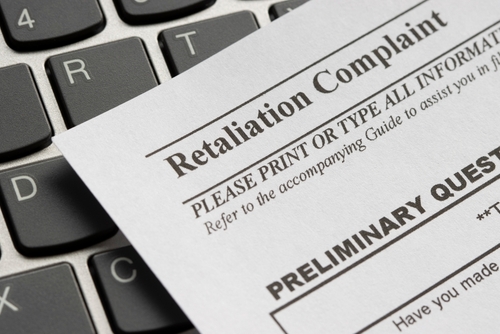
Retaliating Against Employees for Refusing to Report to Work During Emergency Conditions
- On 25 October 2022
- Posted by Chantal Mariotti
By Michelle Harrington on October 5, 2022 – The Law Offices of Fox Rothschild, LLP
With so many natural disasters in the news, it is no surprise that California is taking steps to protect employees who are subject to them. Last week, California’s Governor Gavin Newsom signed Senate Bill (SB) 1044 (Labor Code §1139), which bans an employer, in the event of an emergency condition, from taking or threatening adverse action against any employee for refusing to report to, or leave a workplace or worksite within the affected areas, because the employee has a reasonable belief that the workplace or worksite is unsafe.
Additionally, SB 1044 prohibits an employer from preventing any employee, including employees of public entities, from accessing the employee’s mobile device or other communications device for seeking emergency assistance, assessing the safety of the situation, or communicating with a person to confirm their safety. This provision does not apply to employees of a depository institution or a correctional facility, or to agricultural equipment operators.
SB 1044 requires an employee to notify the employer of the emergency condition requiring the employee to leave or refuse to report to the workplace or worksite. These provisions do not apply when emergency conditions that pose an imminent and ongoing risk of harm to the workplace, the worksite, the worker, or the workers’ home, have ceased.
Emergency Conditions
An emergency condition is defined as either of the following:
- Conditions of disaster or extreme peril to the safety of persons or property at the workplace or worksite caused by natural forces or a criminal act;
- An order to evacuate a workplace, worksite, or worker’s home, or the school of a worker’s child due to a natural disaster or a criminal act.
An “emergency condition” does not include a health pandemic.
Reasonable Belief
“A reasonable belief that the workplace or worksite is unsafe” means that a reasonable person, under the circumstances known to the employee at the time, would conclude there is a real danger of death or serious injury if that person enters or remains on the premises. The existence of any health and safety regulations specific to the emergency condition and an employer’s compliance or noncompliance with those regulations shall be a relevant factor if this information is known to the employee at the time of the emergency condition or if the employee received training on the health and safety regulations mandated by law specific to the emergency condition.
Excluded Employees
SB 1044 does not apply to the following:
- First responders.
- Disaster service workers.
- An employee who is legally required to render aid or remain on the premises in case of an emergency.
- An employee or contractor of a health care facility who provides direct patient care, and provides services supporting patient care operations during an emergency, or is required by law or policy to participate in emergency response or evacuation.
- An employee of a private entity that contracts with the state or any city, county, or political subdivision of the state, including a special district, for purposes of providing or aiding in emergency services.
- An employee working on a military base or in the defense industrial base sector.
- An employee performing essential work on nuclear reactors or nuclear materials or waste.
- An employee of a company providing utility, communications, energy, or roadside assistance while the employee is actively engaged in or is being called upon to aid in emergency response, including maintaining public access to services such as energy and water during the emergency.
- An employee of a licensed residential care facility.
- An employee of a depository institution.
- A transportation employee participating directly in emergency evacuations during an active evacuation.
- An employee of certain privately contracted private fire prevention resources.
- An employee whose primary duties include assisting members of the public to evacuate in case of an emergency.
Private Attorneys General Act (PAGA)
Notably, violations of SB 1044 would give rise to penalties under the California Private Attorneys General Act (PAGA), among other undesired consequences. On the bright side, an employer has a right to cure any alleged violation before a PAGA suit may be instigated.
POSTED IN ADVICE & COUNSELING, WAGE AND HOUR


